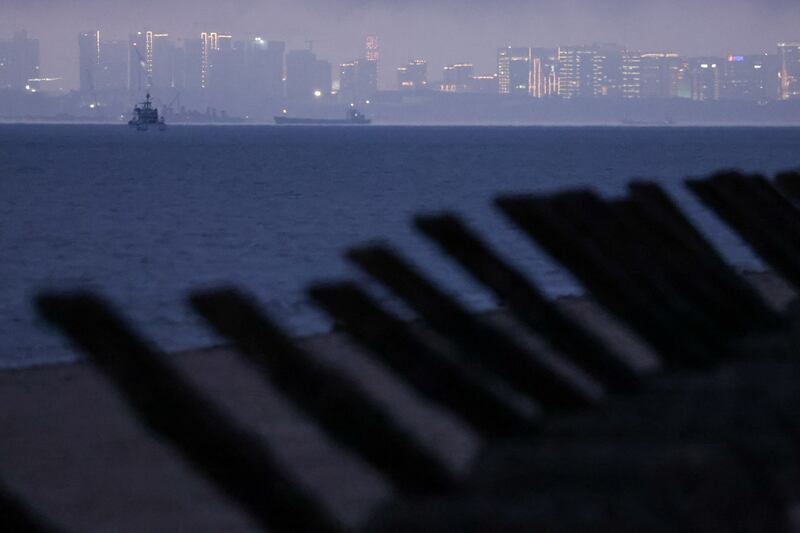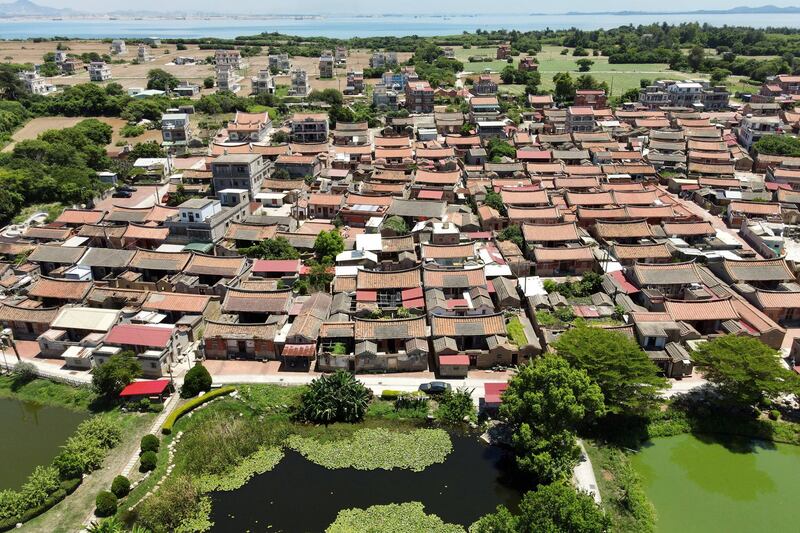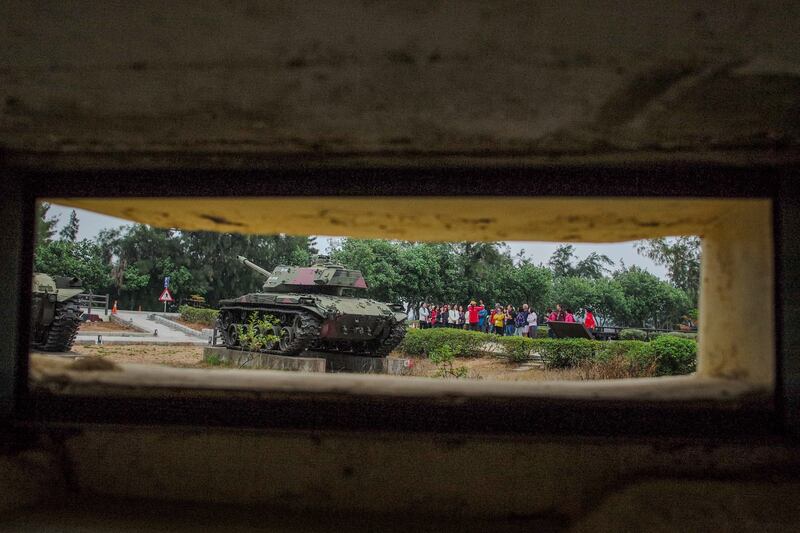Taiwan's frontier archipelago of Kinmen sits less than 10 kilometers (6.2 miles) from China’s Fujian province.
Its uneasy position is the subject of the Oscar-nominated short documentary "The Island Between" by Taiwanese-American director S. Leo Chiang.
Once the scene of sporadic exchanges of shelling between the former Kuomintang government of the 1911 Republic of China and Chinese communist forces in the decades following the Chinese civil war, the tiny democratic outpost is once more at the front line of military tensions and propaganda wars across the Taiwan Strait.
Both Taipei and Beijing have said they will “enforce the law” in the waters between the island and China’s mainland after a Feb. 14 sea chase that resulted in the deaths of two Chinese men aboard a Chinese boat that entered Kinmen's waters and refused to submit to inspection by Taiwan's coastguard.
The renewed tensions came after Chiang's evocative short film was shortlisted for the Academy Award for Best Short Documentary on Jan. 23.
The film-maker, who grew up under the authoritarian Kuomintang government singing patriotic songs about how the 1911 Republic of China on Taiwan would one day join forces with the United States and run the evil communists out of mainland China, told RFA Mandarin in a recent interview that he wanted to draw the attention of the English-speaking world to the ongoing military tensions, and particularly their impact on local people.
This interview has been edited for length and clarity.
RFA: When did you have the idea to make this film?
Chiang: It kind of came in waves. I think the first wave was because the Republic of China [which controls Taiwan, Penghu, Kinmen and Matsu] and the United States broke off diplomatic relations. It sounds weird to say that. It means actually that the Taiwanese government broke off diplomatic relations with the United States, and the Republic of China lost its seat at the United Nations. A lot of Taiwanese were feeling pretty nervous at that time. I left in 1985. By the 1990s, there were tensions across the Taiwan Strait, so naturally a lot of parents sent their kids out of the country. Taiwanese people have always had a way of thinking about how to put safeguards in place for themselves and their family's future, then just getting on with their lives.
We started shooting the documentary in the fall of 2021. We shot it off and on for about a year, and then edited it for about a year. I wanted to shoot the story of Kinmen because everyone in Taiwan knows about the island, whether they learned about it in history class or through their family. A lot of young people hope to do their military service in Kinmen or Matsu – it's called "winning a Golden Horse Award," [a pun on the names of the two frontier islands.] Lots of people have heard stories about Kinmen, but very few have actually been there.

I wound up going out there on a trip with my parents in 2020, because it was hard to go abroad during the pandemic restrictions. Kinmen was a lot different than I had imagined. It was very interesting. I don't think I'd heard specifically about the battlefield relics, the southern Fujianese architecture, and the natural landscape when I was a kid.
Also at that time, I was in discussion with a production company in Taipei called CNEX about the possibility of collaboration. Their director just happened to have visited Kinmen around the same time. I brought up Kinmen as a very interesting topic while I was chatting to him.
RFA: Why did you choose to tell the story in the first person, and why did you tell it in English?
Chiang: When we started filming, the plan was to tell the story entirely using the voices of people from Kinmen.
The first cut, which was probably five or six small segments, was made up entirely of interactions with local people, with not many interviews and no narration. But when we started sharing it with people, we got feedback that they thought the topic was very interesting and the cinematography was beautiful, but that it wasn't clear what the film was trying to say. So we talked about that among ourselves, and about whether to include my story in the film.
I was born and raised in Taiwan, but I emigrated to the United States at the age of 15. So, I've been in the United States longer than I've been in Taiwan. You could say that my standpoint is half-American and half-Taiwanese.

We thought that would be an interesting way to get into cross-straits relations and the story of Kinmen. And we have wanted all along to tell that story to an international audience. We thought it might work if I told the story for an international audience, because of my dual nationality and bicultural background. There was another consideration, that I didn't want what I said to be blurred in translation.
RFA: What about viewers in mainland China or overseas Chinese? What would you say to them, if they could see the film? Is there anything you would want them to take from it?
Chiang: I want everyone to understand the pressure that history exerts on the present. I would like them to realize that the people of Taiwan want to be able to decide their own future, that Taiwanese shouldn't be relegated to the status of a political football, nor be forced to live their lives and work hard for an uncertain future. I would like them to support the right to self-determination for the people of Taiwan.
We Taiwanese cherish our democracy and cherish our freedoms, and that's why I'm worried. It's possible that one day, we will need to choose between freedom and democracy. What do we do if China's government really does decide to come over here? Do we resist? Or should we cooperate for the sake of peace? If we choose resistance, we will have to relinquish peace. What would be the consequences of giving up peace? A tough future like that is hard to think about.
Peace across the Taiwan Strait doesn't just need agreement between Taiwan and China – it would also need the support of other countries – the United States and European countries. I think that if we can show the Taiwanese standpoint and the Taiwanese experience of cross-straits tensions to an international audience, they will understand why peace is important and how they can support it. It might be easier to imagine, and not as black-and-white as they might have thought. It's not simply that the Taiwanese are Taiwanese, the Chinese are Chinese, and that both sides are hell-bent on hostility.

I think it's a very complicated relationship. Taiwan is a pluralistic society, but actually China is too. There are lots of different ways of looking at the cross-straits relationship, and at peace. I hope our film makes them think about the blurred area in between black and white.
RFA: You include footage of news broadcasts from the United States and Taiwan in the film -- what was your thinking there?
Chiang: I wanted to show how the United States has always cared about Taiwan, and has always had contact with and influence on the Taiwanese government. The United States has played a very active role on the Taiwanese side, and in cross-straits relations, for more than 70 years.
RFA: What reactions have you had since releasing the film on YouTube in December?
Chiang: Some overseas Chinese and Taiwanese have told us that they found it very moving. They felt as if their stories were being heard, and that their point of view was being represented.
Translated by Luisetta Mudie .
